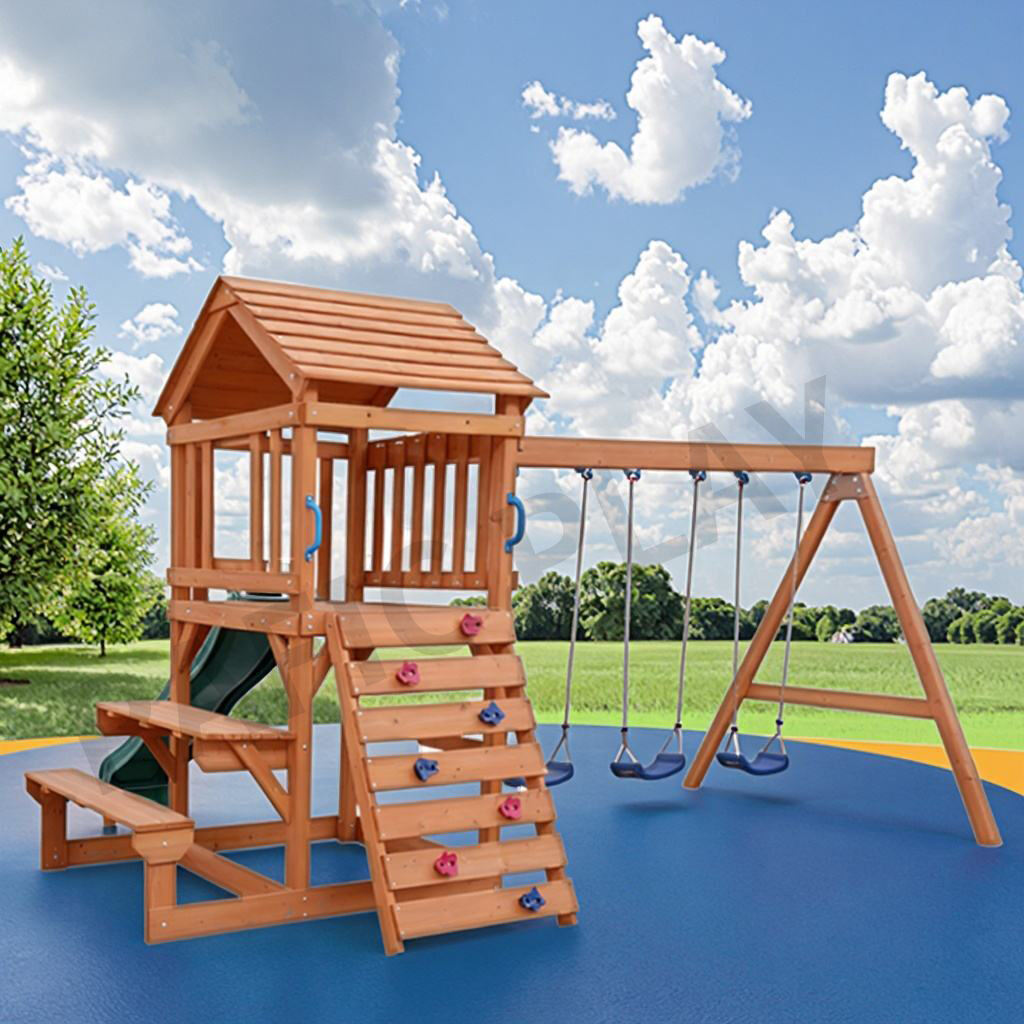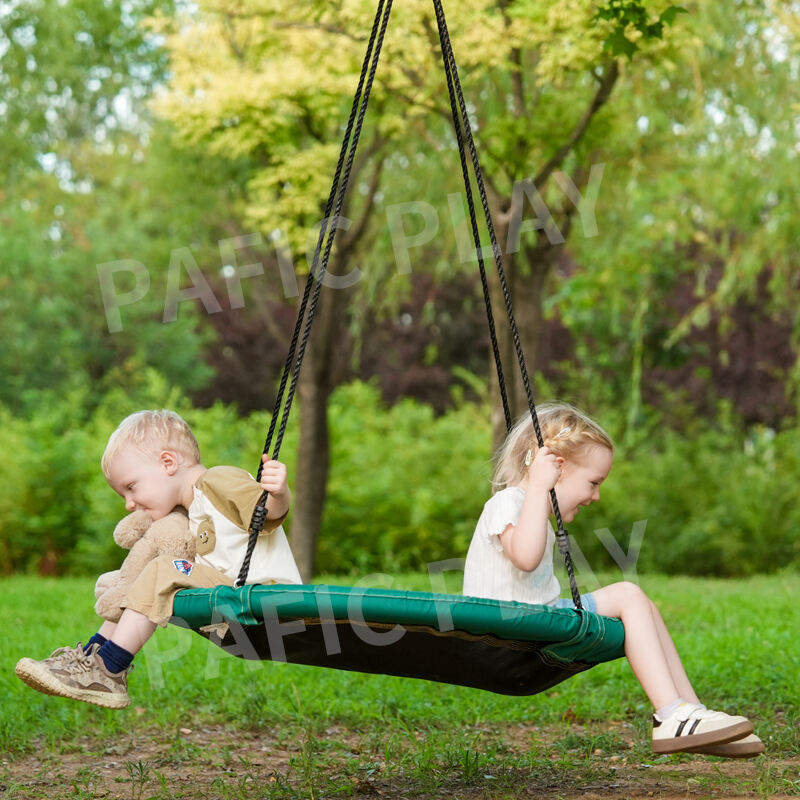The outdoor playground has long been recognized as a fundamental cornerstone of childhood development. In today's digital age, where screens and indoor activities increasingly dominate children's lives, the importance of outdoor playground experiences has become more crucial than ever. These vibrant spaces offer more than just entertainment - they serve as dynamic learning environments where children develop essential life skills, build physical capabilities, and nurture their creative spirits.
Modern research continues to validate what generations of parents have intuitively known: time spent in outdoor playground settings provides irreplaceable benefits for children's holistic development. From enhanced cognitive abilities to improved social skills and physical health, these natural play environments create the perfect conditions for children to grow, learn, and thrive.
An outdoor playground provides the ideal environment for children to develop both fine and gross motor skills. Climbing structures, swings, and balance beams challenge children to coordinate their movements, improve their balance, and build core strength. The varied terrain and equipment found in outdoor playground settings encourage children to push their physical boundaries safely while developing crucial bodily awareness.
When children navigate different playground equipment, they naturally enhance their spatial awareness and proprioception - the ability to understand where their body is in space. These skills are fundamental for everyday activities and future athletic pursuits.

Regular activity in an outdoor playground setting contributes significantly to children's cardiovascular health. Running, climbing, and engaging in active play naturally increases heart rate and builds endurance. The diverse range of equipment encourages children to use different muscle groups, promoting balanced physical development.
Research shows that children who regularly access outdoor playground facilities are more likely to maintain healthy body weight and develop positive attitudes toward physical activity. This early foundation of active living can establish lifelong healthy habits.
The outdoor playground environment presents children with numerous opportunities to develop critical thinking and problem-solving abilities. Whether figuring out how to climb a complex structure or creating new games with peers, children constantly engage in cognitive processes that strengthen their analytical skills.
These natural learning experiences help children understand cause and effect relationships, spatial concepts, and basic physics principles through hands-on experimentation. The outdoor playground becomes an informal classroom where learning occurs organically through play and exploration.
An outdoor playground serves as a blank canvas for children's imagination. Natural elements like sand, water, and various playground equipment can transform into anything in a child's mind, fostering creative thinking and storytelling abilities. This type of unstructured play is essential for developing innovative thinking patterns and problem-solving approaches.
The open-ended nature of outdoor playground activities allows children to experiment with different scenarios, roles, and solutions, building their creative confidence and cognitive flexibility.
The outdoor playground environment naturally facilitates social interaction and relationship building among children. Through shared play experiences, children learn valuable lessons in cooperation, negotiation, and conflict resolution. They practice taking turns, sharing resources, and working together toward common goals.
These social interactions in the outdoor playground setting help children develop empathy, understand different perspectives, and build lasting friendships. The natural flow of playground activities creates opportunities for children to practice leadership skills and learn to follow others' lead.
Time spent in an outdoor playground helps children develop emotional resilience and self-regulation skills. When faced with physical challenges or social situations, children learn to manage their emotions, overcome fears, and build confidence through successful experiences.
The outdoor playground provides a safe space for children to take calculated risks, learn from failures, and celebrate achievements. These experiences contribute to building self-esteem and a positive self-image that carries into other aspects of their lives.

Modern outdoor playground designs often incorporate natural elements, helping children develop an early appreciation for the environment. Through direct interaction with nature, children learn about weather patterns, seasonal changes, and the importance of environmental stewardship.
This exposure to natural elements in the outdoor playground setting helps foster a lifelong connection to nature and an understanding of environmental responsibility. Children who regularly interact with nature through playground experiences are more likely to develop eco-conscious attitudes and behaviors.
The outdoor playground environment provides rich sensory experiences that are essential for children's development. Different textures, temperatures, sounds, and visual stimuli help children develop their sensory processing abilities and understanding of the world around them.
These varied sensory experiences in the outdoor playground setting contribute to better body awareness, improved attention span, and enhanced learning capabilities. The natural elements present in outdoor play spaces offer unique opportunities for sensory exploration that cannot be replicated indoors.
Health experts recommend that children spend at least 60 minutes engaged in outdoor physical activity each day. This can be divided into multiple sessions throughout the day, with outdoor playground time being an excellent way to achieve this goal. The specific duration may vary based on age, weather conditions, and individual needs.
Essential safety measures include proper adult supervision, age-appropriate equipment, impact-absorbing surfaces, regular maintenance checks, and clear playground rules. It's also important to ensure children wear appropriate clothing and sun protection during outdoor playground activities.
Yes, outdoor playground activities can be particularly beneficial for children with special needs. Inclusive playground designs can accommodate different abilities while promoting physical development, sensory integration, and social interaction. Many modern outdoor playground facilities are specifically designed to be accessible and beneficial for all children, regardless of their abilities.
 Hot News
Hot News2025-12-26
2025-12-22
2025-12-19
2025-12-11
2025-12-03
2025-11-03